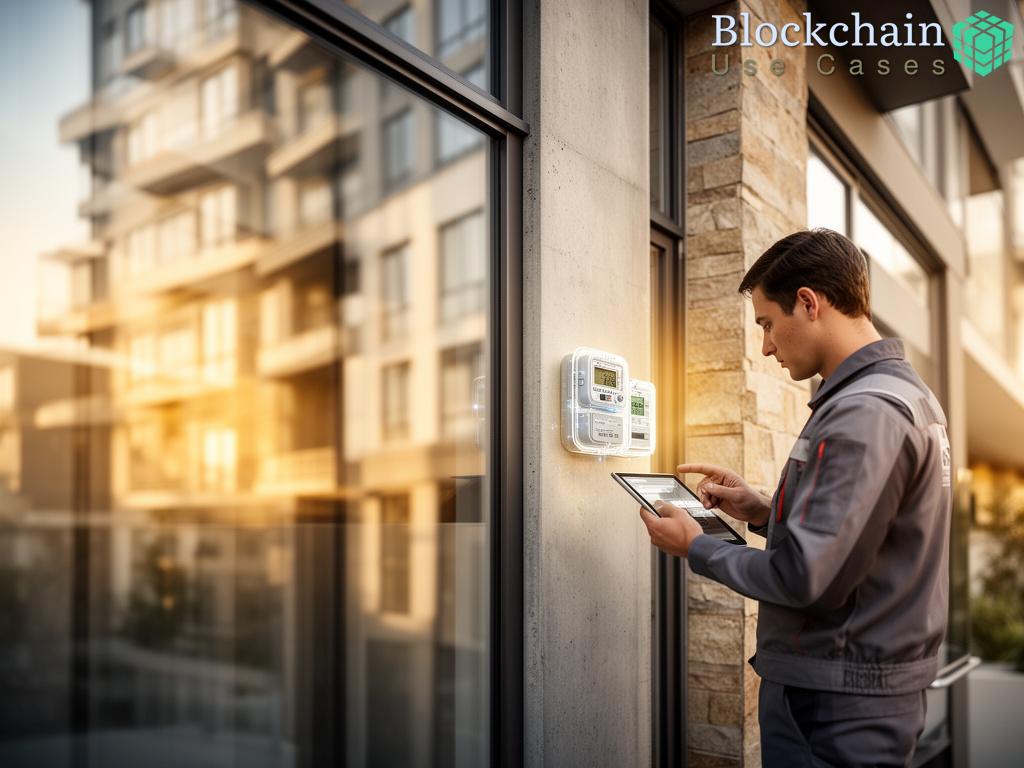Overview of Smart Contracts in Real Estate
In the fast-evolving landscape of real estate, the advent of smart contracts is a game changer. These self-executing contracts with the terms of the agreement directly written into code promise to streamline transactions and enhance trust. By leveraging blockchain technology, real estate professionals can manage commission splitting and referral processes more efficiently, reducing the need for intermediaries and minimizing potential disputes.
Smart contracts operate on decentralized networks, where they automatically execute transactions once predefined conditions are met. This eliminates the need for manual intervention, significantly speeding up the sales process. For instance, once a buyer makes a payment, the smart contract automatically transfers ownership records to the buyer, ensuring a seamless transaction. This level of automation not only enhances efficiency but also fosters transparency, as all parties can track the transaction in real-time.
The integration of smart contracts in real estate offers numerous advantages, particularly in the areas of commission splitting and referral management. Below is a concise overview of the primary benefits:
- Transparency: All transactions are recorded on the blockchain, providing a clear audit trail.
- Cost-Effectiveness: Reduces the need for intermediaries, lowering transaction costs.
- Speed: Transactions are executed automatically, which accelerates the closing process.
- Security: Blockchain technology offers enhanced protection against fraud and unauthorized access.
- Flexibility: Smart contracts can be customized to fit various real estate scenarios, from sales to leasing.
As smart contracts continue to gain traction in the real estate sector, stakeholders must navigate certain challenges, such as regulatory compliance and the need for technological literacy among agents and clients. However, the potential for enhanced efficiency, security, and transparency presents a compelling case for adoption. As this technology evolves, it will likely reshape the real estate landscape, making transactions smoother and more reliable.
Mechanisms for Commission Splitting
The integration of smart contracts into real estate commission splitting is revolutionizing how agents and brokers manage their earnings. By utilizing blockchain technology, these contracts ensure that commission distributions are executed with precision and accountability. The result is a system that not only enhances efficiency but also builds trust among all parties involved.
When a transaction is finalized, the smart contract automatically calculates the agreed-upon commissions based on predetermined parameters. This eliminates the potential for human error and disputes that may arise from manual calculations. As the sale progresses, the contract continuously updates, reflecting any changes in commission rates or referral fees, all while maintaining a transparent and immutable record.
One of the most compelling features of smart contracts is their ability to ensure precise commission distribution. Each party’s share is clearly defined in the contract, allowing for real-time adjustments as conditions change. For instance, if a referral is involved, the contract can automatically allocate the appropriate percentage of the commission to the referring agent without any manual intervention. This level of automation not only expedites the payment process but also fosters a sense of security, as agents can trust that their earnings will be fairly and accurately distributed.
Moreover, transparency is a cornerstone of smart contracts in commission management. Each transaction is recorded on the blockchain, providing an unalterable audit trail accessible to all parties. This transparency mitigates the risk of disputes over commission splits, as every agent can view the terms and calculations involved in real-time. The result is a more collaborative environment where trust is built on visibility rather than assumptions, significantly enhancing the relationships among agents.
As the real estate industry increasingly embraces technology, the implications of smart contracts extend beyond mere efficiency. They represent a paradigm shift in how commission splitting and referral management is approached, paving the way for a more equitable and transparent landscape. In this evolving ecosystem, agents and brokers are empowered to focus on what truly matters: fostering relationships and closing deals.
Enhancing Referral Management with Blockchain
In the competitive realm of real estate, effective referral management is paramount for agents seeking to maximize their earnings and establish robust networks. By integrating blockchain technology into this process, professionals can enhance the efficiency and reliability of referrals, ultimately improving their business outcomes. The dynamism that smart contracts bring to referral management not only streamlines operations but also fosters a culture of accountability and transparency.
Precision and Automation in Referral Processes
Smart contracts revolutionize the way referrals are handled by automating the entire workflow. When a referral is generated, the contract immediately activates, laying out the terms of the agreement and the commission structure. This automation eliminates the possibility of miscommunication or oversight, ensuring that agents and brokers are compensated accurately and promptly. With every referral tracked on the blockchain, agents can have confidence that their contributions will be recognized without the risk of human error distorting the calculations.
Building Trust through Transparency
The transparency offered by blockchain technology is one of its most significant advantages in referral management. Each transaction, including referral agreements, is recorded in an immutable ledger, available for all parties to view. This level of visibility eliminates ambiguity and enhances trust among agents. When agents can see the terms of their agreements and the flow of commissions in real-time, it fosters a cooperative environment where relationships can flourish. The transparency of smart contracts also serves as a safeguard against potential disputes, as all parties have access to the same information, reducing the likelihood of misunderstandings.
Future of Referral Management in Real Estate
As the real estate industry continues to evolve, the adoption of smart contracts for referral management is set to grow. The seamless integration of blockchain technology not only enhances operational efficiency but also positions agents to thrive in a data-driven environment. By embracing these innovations, real estate professionals can focus on strengthening their networks and expanding their reach, knowing that their referral processes are underpinned by technology that promotes fairness and integrity.
Legal Implications of Smart Contracts in Real Estate
As the integration of smart contracts into real estate transactions accelerates, understanding their legal standing becomes paramount. Smart contracts, functioning as self-executing agreements where the contract terms are directly embedded in code, challenge traditional legal frameworks. Unlike conventional contracts, which often require extensive legal review and negotiation, smart contracts operate on decentralized networks, automatically executing when conditions are met. This brings forth questions about their enforceability in courts, as well as the jurisdictional implications that may arise when contracts are executed across state or national boundaries.
Legal practitioners are gradually recognizing the potential of smart contracts, but clarity is needed regarding their classification under existing contract law. The fundamental question remains: Can a smart contract hold the same enforceability as a traditional contract? Recent legal developments indicate a growing acceptance of smart contracts, yet inconsistencies in regulations across jurisdictions can create an environment of uncertainty for real estate professionals.
Incorporating smart contracts into real estate transactions also necessitates a thorough understanding of regulatory compliance. The landscape of real estate is heavily regulated, with laws governing property transactions, licensing, and consumer protection. Smart contracts must adhere to these regulations, ensuring that they do not inadvertently violate laws such as anti-money laundering (AML) or know your customer (KYC) requirements.
Moreover, the immutable nature of blockchain technology poses unique challenges in terms of compliance. Once data is recorded on the blockchain, it cannot be altered. This characteristic, while promoting transparency, raises concerns about data privacy and compliance with regulations like the General Data Protection Regulation (GDPR). Real estate professionals must remain vigilant about how data is captured and stored within smart contracts, ensuring that they implement measures to protect sensitive information.
With the deployment of smart contracts in commission splitting and referral management, understanding liability becomes critical. The code that governs these contracts dictates the terms and conditions, but what happens if a flaw in the code leads to erroneous transactions? Legal liability in such scenarios can be murky, as it may not be clear whether the developer, the real estate agent, or the blockchain platform is responsible.
To mitigate these risks, professionals should prioritize rigorous testing of smart contracts before deployment. Engaging legal experts to review the contract code can help identify potential vulnerabilities that could lead to disputes. Furthermore, establishing clear protocols for addressing errors or discrepancies is essential for maintaining trust among stakeholders. By proactively managing these risks, real estate professionals can harness the benefits of smart contracts while safeguarding themselves against potential legal challenges.
Case Studies: Successful Implementations in the Industry
As the real estate industry embraces technological advancements, numerous case studies demonstrate the successful implementation of smart contracts in commission splitting and referral management. These examples not only highlight the efficiency gains but also showcase the transformative impact on real estate transactions. By examining these cases, stakeholders can glean valuable insights into the practical applications of smart contracts and the potential for widespread adoption in the sector.
The following table summarizes notable case studies that illustrate the effective use of smart contracts in real estate:
| Company | Implementation | Results |
|---|---|---|
| Propy | Facilitated cross-border property transactions using smart contracts. | Reduced transaction time by 50%, ensuring faster deal closures. |
| Real Estate Blockchain Alliance | Developed a referral management system that automates commission distribution. | Increased transparency led to a 30% reduction in disputes over commissions. |
| SmartCoin | Utilized blockchain technology for escrow services in real estate deals. | Enhanced security and trust, resulting in a 40% increase in user engagement. |
The successful implementations of smart contracts in these case studies reveal several key lessons for real estate professionals:
- Embrace Automation: The automation of commission splitting and referral processes significantly reduces human error and accelerates transactions.
- Prioritize Transparency: A clear audit trail fosters trust among agents and clients, essential for long-term business relationships.
- Adapt to Regulatory Changes: Staying informed about legal frameworks ensures compliance and mitigates potential risks associated with smart contracts.
As the industry progresses, these case studies serve as a testament to the potential of smart contracts in revolutionizing real estate practices. By adopting such innovations, professionals can enhance operational efficiency, build trust, and ultimately drive growth in their businesses.





